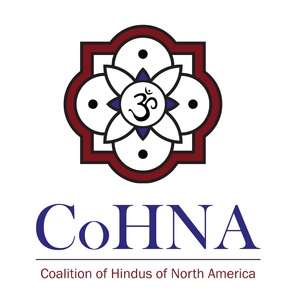
CoHNA and its youth team at Rutgers welcome this decision due to the proven harm to minority communities by the irresponsible use of such terms
NEW BRUNSWICK, N.J., Jan. 14, 2025 /PRNewswire/ -- Rutgers University has announced it will NOT be adding "caste" as a protected category to its policy preventing harassment and discrimination. As the leading American Hindu grassroots advocacy and civil rights organization with a student team in Rutgers, CoHNA welcomes this decision. In clarifying its stance, Rutgers agreed with the position taken by CoHNA (and established law) that caste discrimination is already covered under existing categories in the policy, such as discrimination based on ancestry and national origin. This decision came in response to a campaign being run by a handful of privileged students and elite professors at Rutgers, with an extensive track record of falsifying Hindu traditions and targeting its deities and traditions.
CoHNA and its CoHNA Youth Action Network (CYAN) team at Rutgers had argued that caste is already covered under existing categories in the policy, such as ancestry and national origin. In addition to being unnecessary, the inclusion of loaded words like caste would actually lead to profiling and discrimination against students and faculty of Hindu and Indian origin, since caste is not a neutral word and instead is primarily associated with these communities.
"I am glad that the Rutgers University Labor Relations office recognized that caste is already covered under their current policy and did not fall for the report by the task force, which singled out Hindu students and faculty," said Hitesh Trivedi, Associate Hindu Chaplain at Rutgers University. "In a recent study, Rutgers University's Social Perception Lab confirmed that adding caste to its policy would increase suspicion and hate towards Hindu and Indian Americans."
Over the past few months, numerous Hindu students at Rutgers and community leaders have been sounding the alarm on the growing attempts to manufacture 'caste consciousness' at the university, as well as educating other student organizations and raising concerns via internal channels. Reacting to the decision, one of the students, who wished to remain anonymous, shared how it was "very intimidating" to speak up in such an environment, and so he is very pleased that the Rutgers administration listened to the concerns of students.
The current policy ensures protection for ALL students and faculty from harassment and bullying
"As a Rutgers alumnus and someone who has been active in the alumni community, I am pleased to see a decision grounded in reason and facts versus the emotions of a small privileged set of activists," said Nikunj Trivedi, President of CoHNA. "Now, we want to ensure that the DEI team is also sensitized on the ramifications of the topic as it considers adding questions on caste in its survey. We will continue to encourage our student team and other organizations at Rutgers to engage with the DEI Office to ensure that the questions are neutral and do not encourage biased answers or community stereotyping."
Background
Last August, when the task force headed by Professor Audrey Truschke first released its findings, CoHNA had highlighted how the task force itself admitted that it could find no data on systemic caste discrimination at Rutgers. Instead, we saw a report that relied on unconnected, even third-party anecdotes, and largely asked for more funding to continue to search for a non-existent problem. CoHNA asks Rutgers to ensure the unscientific nature of such reports be factored into future decisions.
It is also critical for the Rutgers administration to take a holistic look at the issue, including the recent research from the university's own Social Perception Lab and the Network Contagion Research Institute (NCRI). The scientifically done study showed that casual references and talk on caste, from people with institutional power, has severe consequences -- including making individuals more likely to agree with 'Hitler-like' statements.
In 2023, the lawsuit filed by the State of California against two Indian American engineers who worked at Cisco, for alleged caste discrimination, was ignominiously withdrawn "with prejudice"-- a move that revealed how the case lacked any basis in reality and how close the California Civil Rights Department came to being sanctioned by California courts. The only other piece of supposed evidence offered has been the 'survey' from Equality Labs, which was also rejected by California courts as inadmissible given its lack of scientific basis. Like the academics at Rutgers, many had used the unproven allegations against Cisco, as proof of guilt and indicted the entire Hindu American community as a result.
In light of the Rutgers decision affirming that any caste discrimination is already covered under existing law, it is important to note this was the same reason that California's SB403 bill was vetoed. Despite almost a decade of investigation, there is no proof of systemic caste discrimination in the US. Yet, elite academics and privileged activists continue to use taxpayer funds to push their personal opinions and causes, over and over again.
About CoHNA:
CoHNA is a grassroots level advocacy and civil rights organization dedicated to improving the understanding of Hinduism in North America by working on matters related to the Hindu community and by educating the public about Hindu heritage and tradition. For more information, please visit https://cohna.org or follow us on Twitter, Facebook, LinkedIn and on Instagram.
SOURCE Coalition of Hindus of North America








Share this article